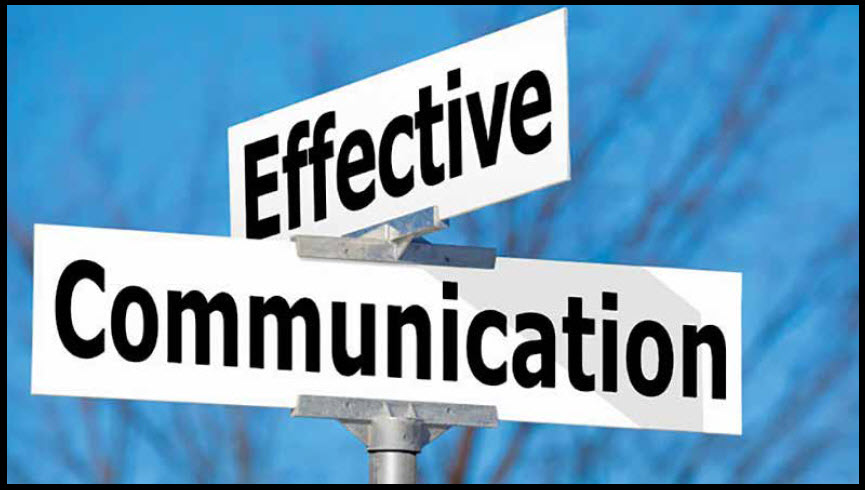 By: Eric Betts
By: Eric Betts
The ability to communicate effectively is a priceless talent. In order to build strong relationships and teams, the art and science of communication must either be innate in the leader or learned through education. One cannot lead effectively or at all if communication skills are poor. Many relationships, teams, and marriages are broken due the inability to communicate well. Relationships are invaluable when it comes to fulfilling one’s vision or mission. It always takes more than the talent and skill of one person to make an impact. It takes a group working together, and that group’s success depends largely on communication. It is often said that the majority of communication is nonverbal, most of which is body language.
John Maxwell, the leadership guru, has written extensively on the subject of communication. The title of one of his books is very instructive on its own. It is entitled, Everyone Communicates, Few Connect. The implication of the title is that in order to really communicate, one must first learn to connect to the hearer. Maxwell explained what he meant when he said. “People may hear your words but feel your attitude.” It can be said that body language and tone can speak louder than words. Additionally, people can sense if they are being manipulated even through the kindest of words.
Words can come across as extremely flattering, and the hearer may get the sense that they are being flattered for reasons that may make them uncomfortable. When it comes to trying to critique a person’s work, they can get a sense as to whether the speaker is attempting to help them or put them in their place. The speaker may not connect with the hearer because the hearer can get the sense that the speaker is simply seeking to promote themselves instead of serving the interests of the larger group. The hearer can also receive nonverbal clues that the speaker doesn’t think very well of them and in fact despises them.
If a leader is indeed interested in the success of the organization and the individuals which constitute that entity, it must be understood that communication is a two-way street. The communicator must also be a great listener. Maxwell says, “If you’re going to connect, people need to know that you understand them.” When one learns to be an effective listener, it helps when it is their turn to communicate.
Maxwell expands on the idea that there is a level of communication that is nonverbal. Every leader needs to understand those levels. Maxwell encourages to “be sure your communication goes beyond words. How can you do that? By connecting on four levels: visually, intellectually, emotionally, and verbally.”
It is important also for leaders to be aware of the role that their personality plays in communication. Sometimes one’s background and personality can impact the tone and tenor of how something is communicated. A great leader will know how he or she sounds to their listeners. It is not good enough to declare that this is your personality and everyone else just has to deal with it. Understand the strengths and weaknesses of your speech patterns and how it plays with the larger group. It may not always require that a dramatic change occur, but awareness is key. Maxwell identifies five areas of your voice that you must be mindful of as a leader. Your personal success and the success of the group may be affected by those five areas. What are they? “Tone, inflection, timing, volume, pacing — everything you do with your voice communicates something and has the potential to help you connect to or disconnect from others when you speak.”
The most difficult time to communicate is when a project hits a wall or team chemistry breaks down. There are certain rules to follow in such settings that will help communicate between parties and guide the group through the conflict.
The road to success as a leader largely depends on how one masters nonverbal communication. Body language is everything. How something is said is just as important as what is said. Sometimes body language can speak louder than words. Finally, learning to be a great listener is vital to the success of a team leader. When one gains the reputation of being a good listener, the team is more inclined to be good hearers. They don’t care how much you know until they know how much you care. This builds chemistry for future success.
By: Eric Betts
Assistant Director, Curtis Coleman Center for Religious Studies and Ethics at Athens State University









 July 19, 2024
July 19, 2024




